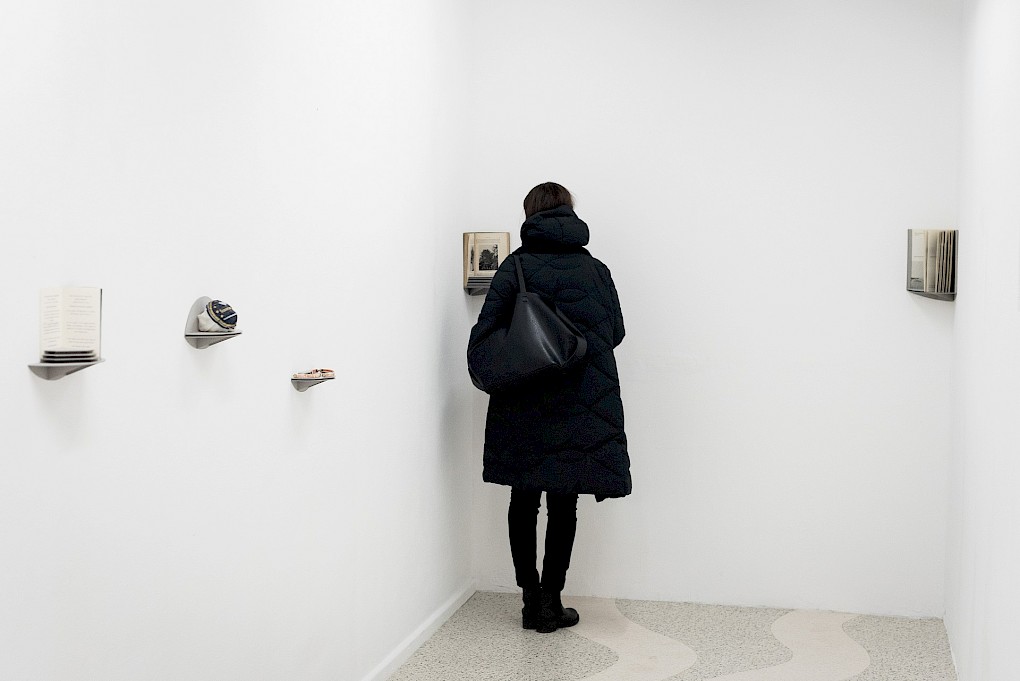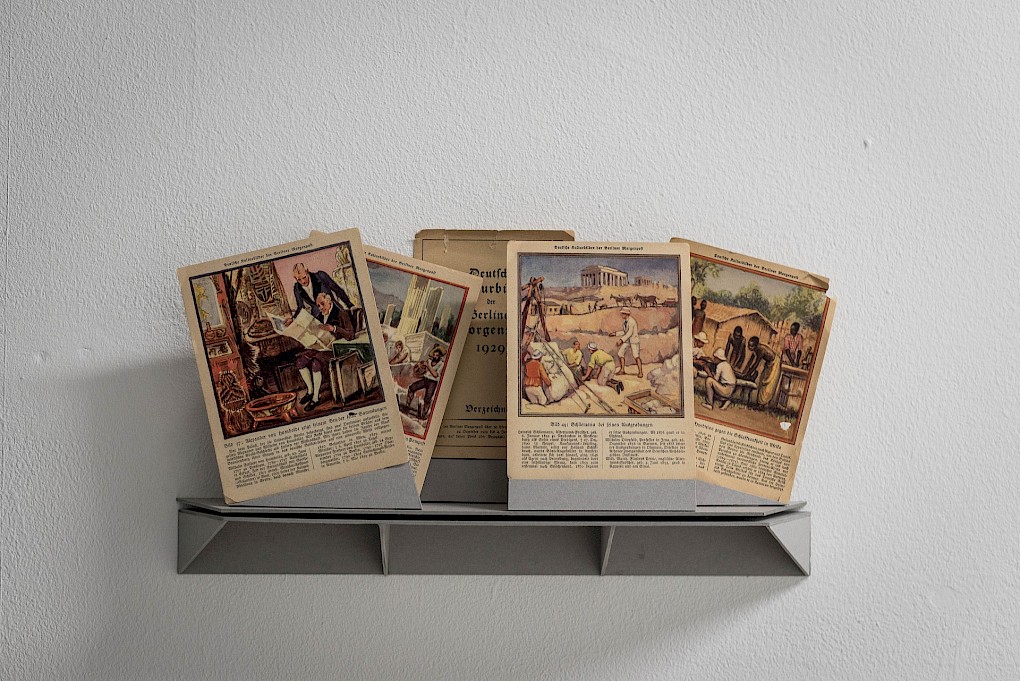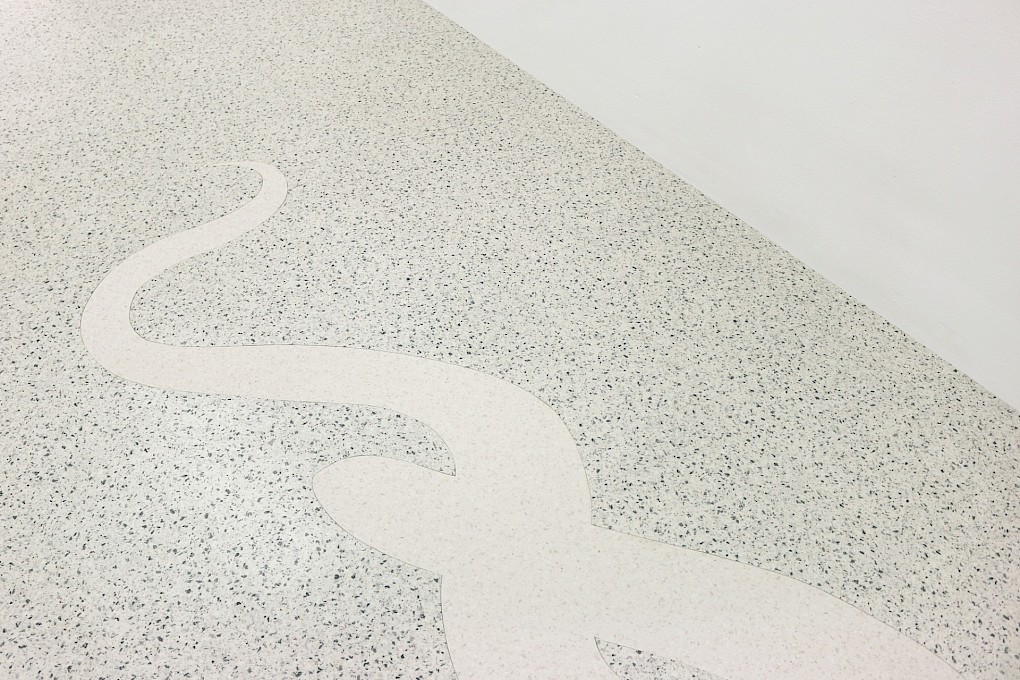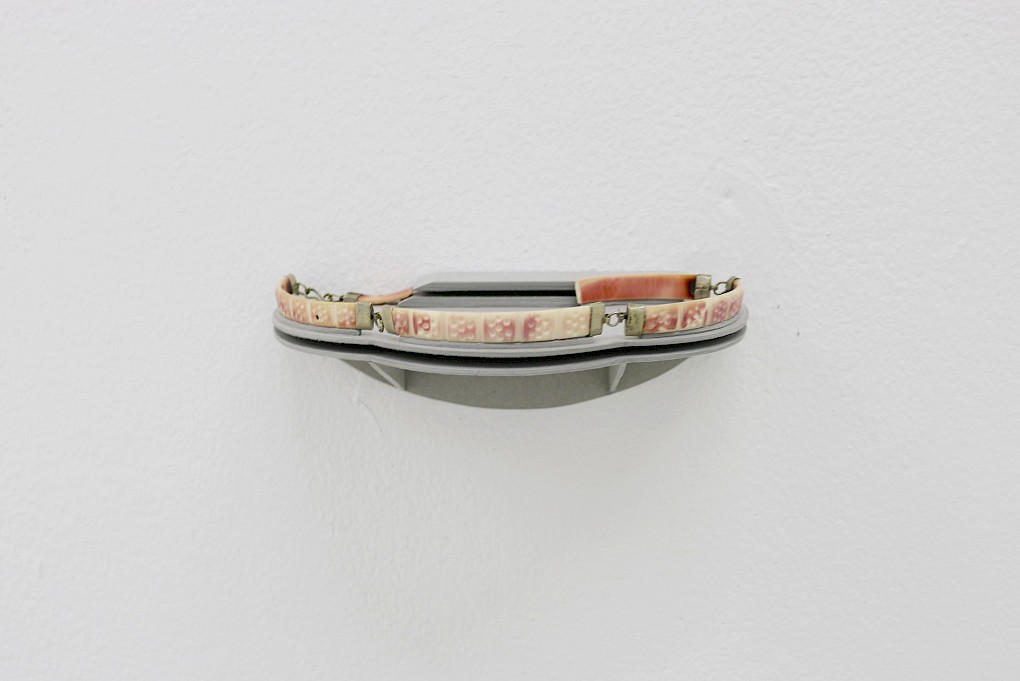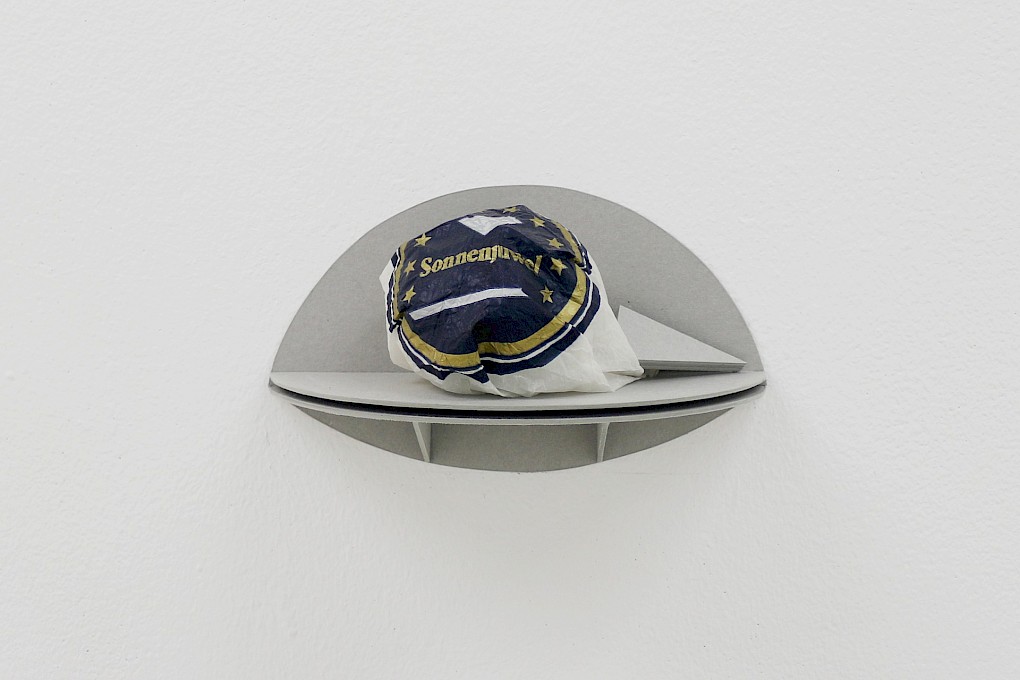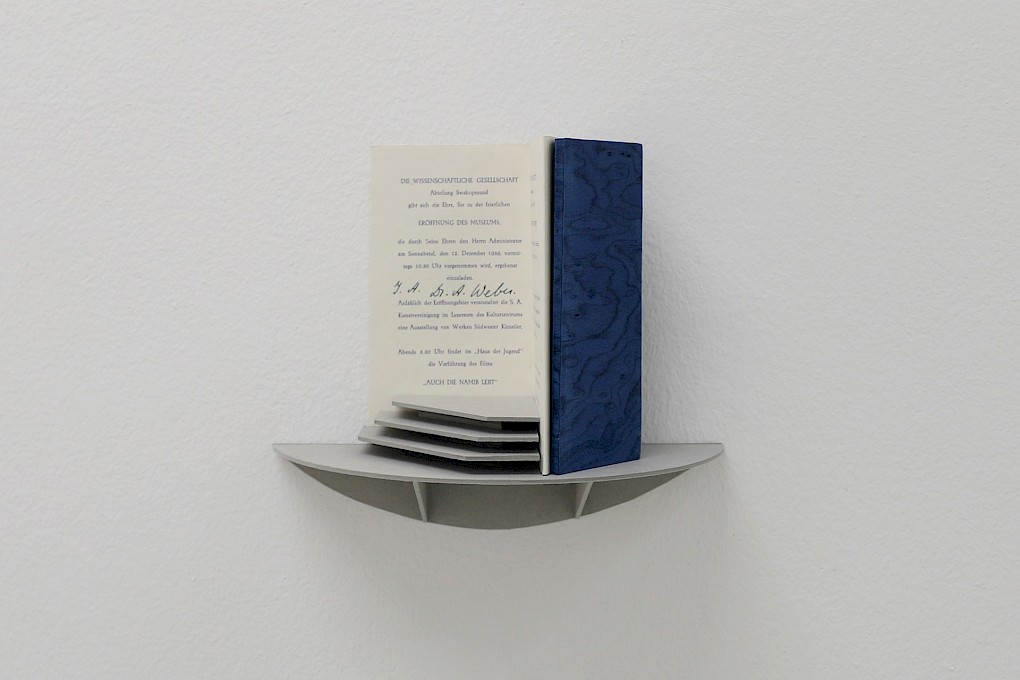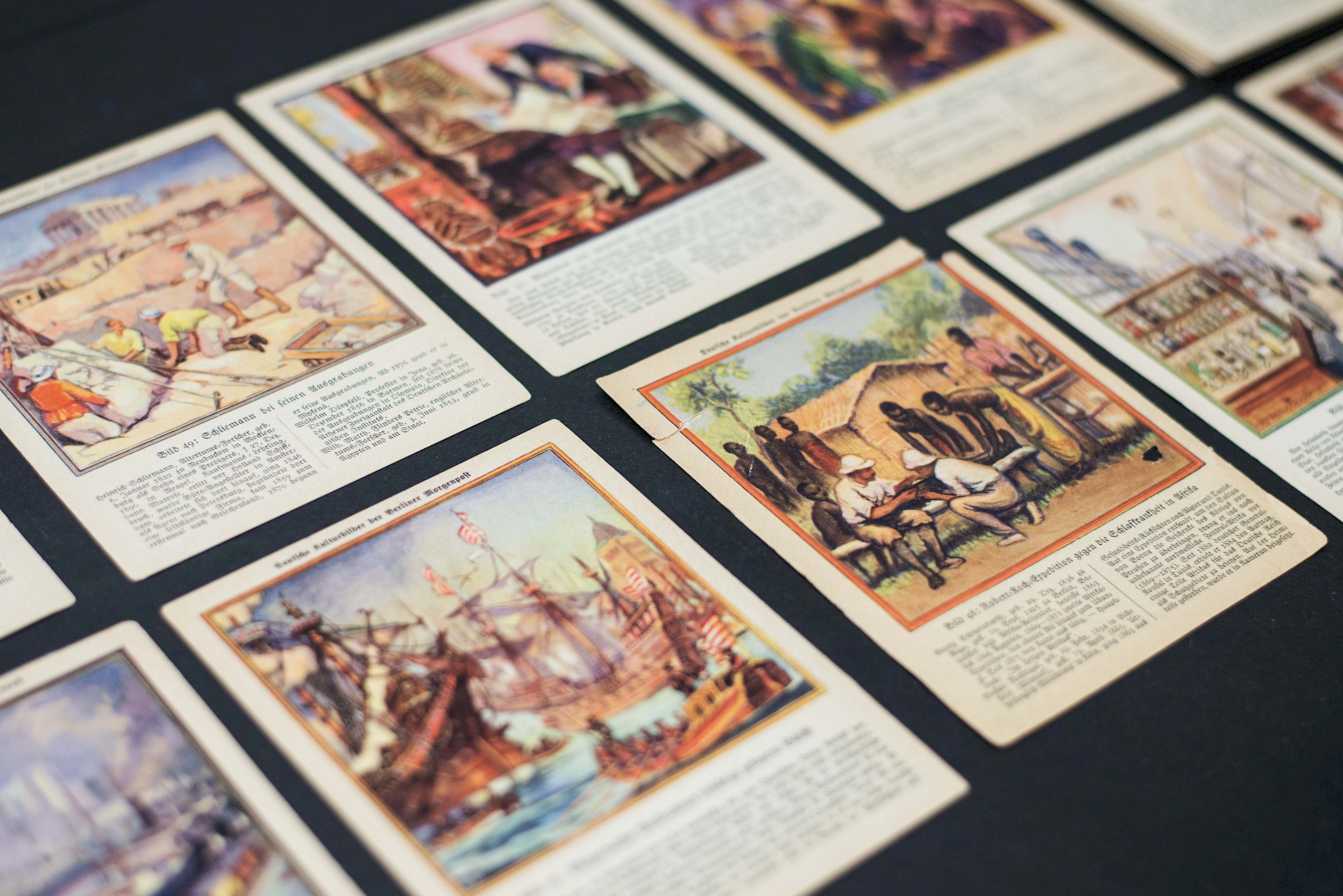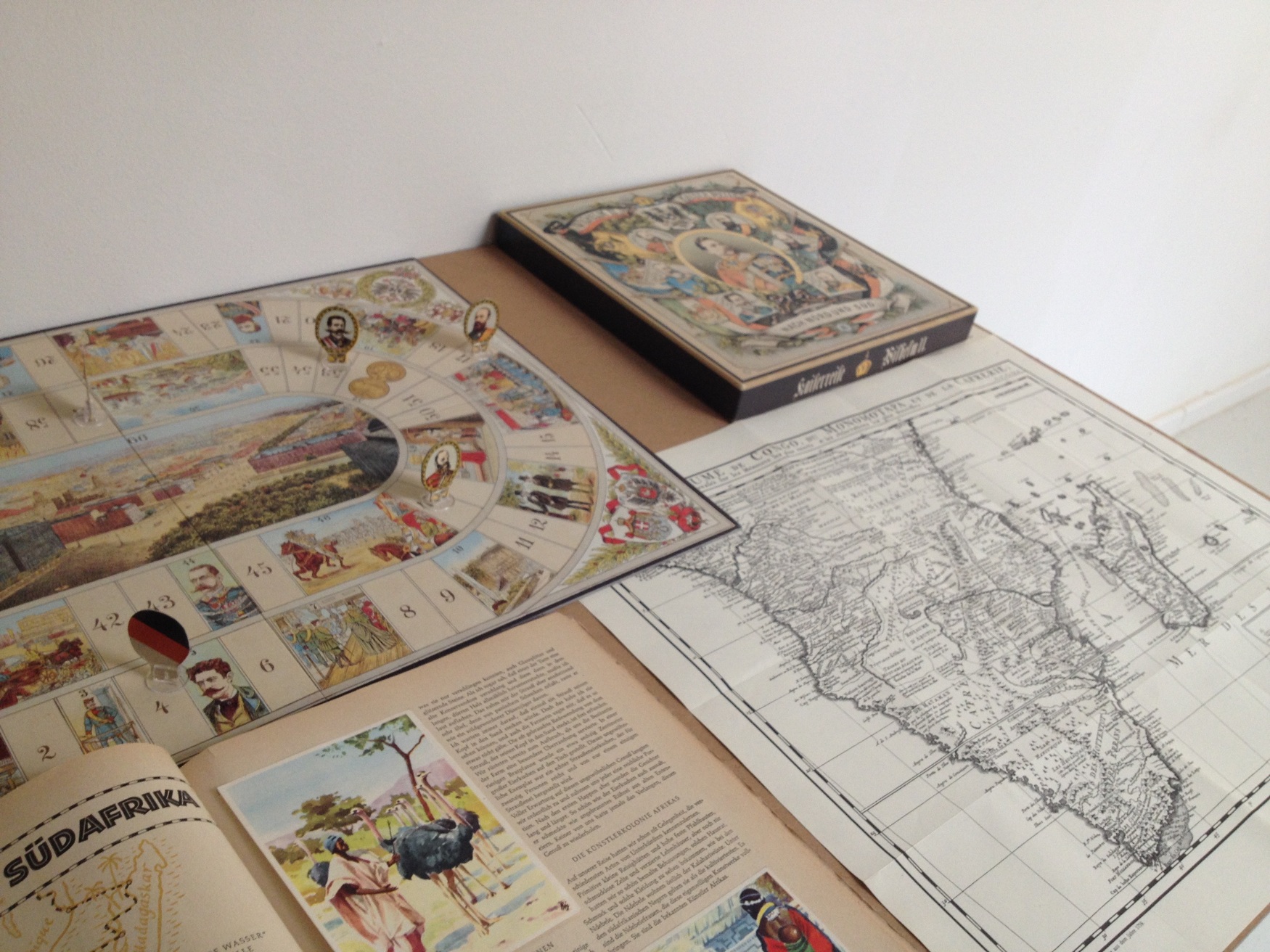Support Structures
Fragment n°4 30.11.–23.12.2018 Thurs–Sun 14:00–19:00
Opening 29.11.2018 19:00
With Sunette Viljoen
Support Structures by South African artist Sunette Viljoen examines the complicated gesture of display and the museological language within which these objects become visible. Within museums, where, when displayed, objects earn a certain weight, value and care is assumed, objects demand consideration, ideologies are embalmed. But with an archive that deliberately houses problematic objects, including everyday colonial artefacts and historical manifestos encouraging racist ideologies, what does it mean to make these objects visible? One can think about display, as ‘dis-play’, objects taken out of play. Indeed, these objects should be taken out of the play.
As the title suggests, the intervention consists of series of support structures custom-made for each object to anchor them, but also prop them up highlighting the contrast between the visible parts and those hidden. These structures support the objects as much as they create distortion, and emphasise the gesture of displaying, of making something visible. Recalling the archival storage supports, the material of the structures suggests the idea of temporary structure which points to the artist’s attempt to experiment with possible ways of displaying Colonial Neighours’ archive.
The floor installation points to another aspect of exhibition design – that of the movement of the viewer in the space. The corridor suggests a linear movement, but the floor pattern implies a meandering line, snaking through the space and guiding one toward the objects on the walls. It creates a clear break in separating the corridor from the rest of the main exhibition hall, a specific scenography in which parts of the archive can be seen. The pattern itself is a reference to the floor in the adjoining Kuppelhalle, but also of clichéd ideas of an exotic, tameable wild, of saturated symbols that became ornamental.
The archival objects selected by the artist show an apparent innocent interest and amazement with Africa, and particularly a concern with the land. The focus is on nature, which slips into another type of interest in the land, that of using, mining, exploiting it. This culminates in the narrative of science and development – this persistent fiction of investment and the rhetorics of ‘improvement’ and progress which are a cornerstone of colonial history.
Support Structures is the latest installment of Colonial Neighbours’ FRAGMENTS series – a series of interventions in and out of SAVVY Contemporary's long term collective archive project on German colonial history. Artists, researchers, activists, and cultural producers are invited to engage with the Colonial Neighbours’ archive, activating and critically contributing to the project. Colonial Neighbours is a participatory archive open to anyone who want to donate objects, texts, and memories related to German colonial history. Once a sharper awareness of these often everyday objects arises, one wonders: how do we negotiate such a collection of objects, especially in displaying them within an exhibition context, to inform and reflect on a particular history?
SUNETTE VILJOEN’S precise sculptural approach incorporates the specificity of materiality, the unaccounted for pockets of merging histories, and the pedagogical systems of colonially-founded institutions to both deconstruct and reimagine the possibilities of objects without completely erasing their histories. Working with framing, propping, and reshaping, she provides a liminal space for viewers to enter to experience sculpture positionality differently. She plays within the reality of knowing that the conditions surrounding objects play a pivotal role in how these objects will be maintained and lauded or destroyed and repressed throughout history. Her process is informed by this relationship, and also a general awareness of postcolonial theory, museum archives, movement within space, and the fragility of language.
Colonial Neighbours Team Lynhan Balatbat-Helbock, Cornelia Knoll, Monilola Olayemi Ilupeju, Jorinde Splettstößer, Marleen Schröder
